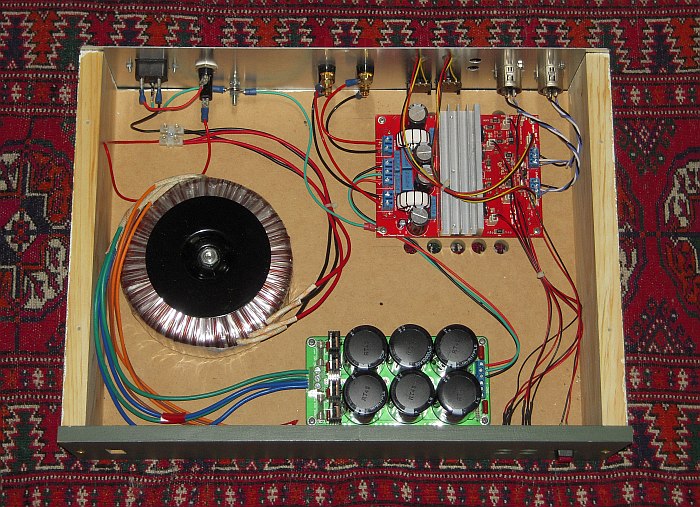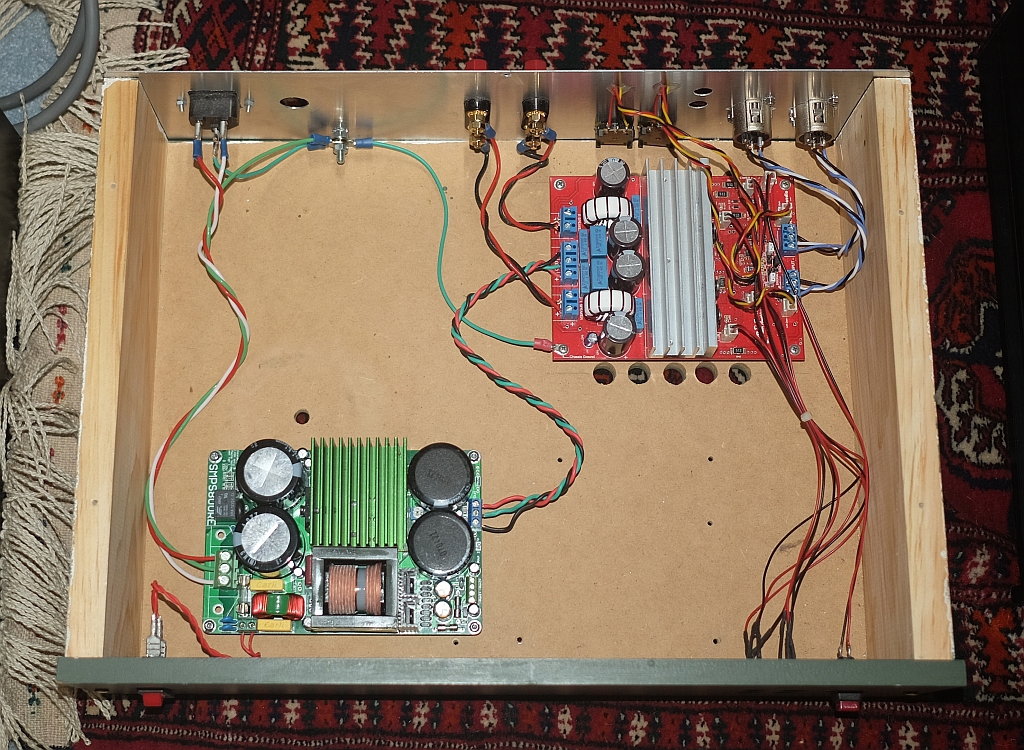Feanor
Member
- Thread Author
- #1
I'm talking about this because a lot of folks firmly believe that a linear supply is pretty much always better than a switching supply. My swap puts that very much in question, at least for me.
OK, the swap was for my backup a Class D Audio SDS-258 module-based DIY amp that I've had for over a decade -- so NOT a critical piece of equipment that I couldn't afford to destroy if it came to that. Actually, my principal objective was to make the amp a lot lighter, not so much to improve the sound.
Unusual for a class D amp, Class D Audio has never offered a SDS-based amp or kit with an SMPS. (A few years ago they offered an SMSP for automotive use, never for AC power).
So I ordered a Connexelectronics SMPS800RE supply with +/- 60 VDC output to duplicate the linear supply. The removal of the linear supply, (also a Connexelectronics model), and replacement was an easy DIY task. Below are Before and After pics.
The sound is just fine: excellent detail, dynamics, and bass, remarkably close to my VTV Purifi amp. A little brighter in the treble than the Purifi, but hey, you wouldn't expect the old CDA to sound quite as perfect. The device has be operating with no problems for several days now. (Beware: neither of the class D amps is going to appeal to any hard-core tube lover.)


OK, the swap was for my backup a Class D Audio SDS-258 module-based DIY amp that I've had for over a decade -- so NOT a critical piece of equipment that I couldn't afford to destroy if it came to that. Actually, my principal objective was to make the amp a lot lighter, not so much to improve the sound.
Unusual for a class D amp, Class D Audio has never offered a SDS-based amp or kit with an SMPS. (A few years ago they offered an SMSP for automotive use, never for AC power).
So I ordered a Connexelectronics SMPS800RE supply with +/- 60 VDC output to duplicate the linear supply. The removal of the linear supply, (also a Connexelectronics model), and replacement was an easy DIY task. Below are Before and After pics.
The sound is just fine: excellent detail, dynamics, and bass, remarkably close to my VTV Purifi amp. A little brighter in the treble than the Purifi, but hey, you wouldn't expect the old CDA to sound quite as perfect. The device has be operating with no problems for several days now. (Beware: neither of the class D amps is going to appeal to any hard-core tube lover.)


Last edited:
